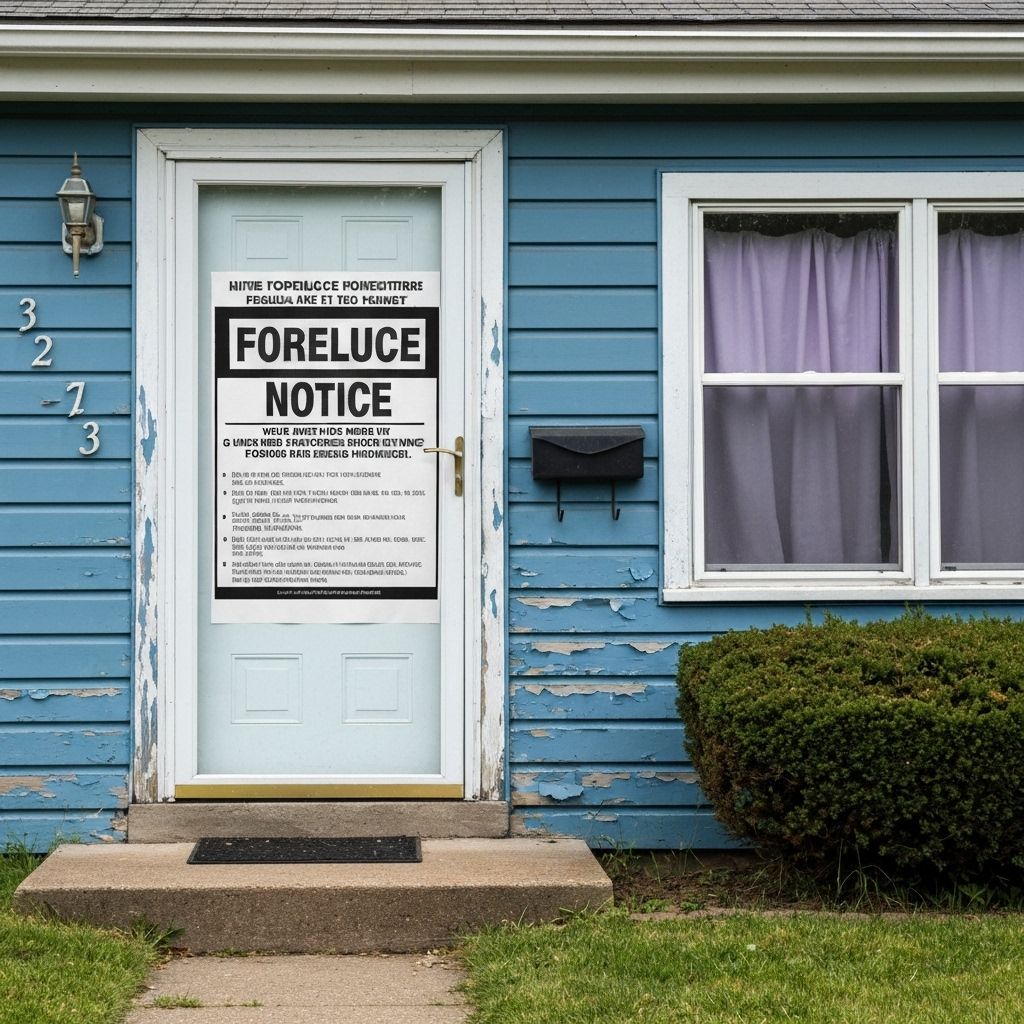Understanding the Foreclosure Process in Your State

The foreclosure process can be intimidating, but understanding the key stages can empower you to make the best decision. From the initial notice to the public auction, it's important to know your rights and options. Selling your home before the auction is often a viable solution that can protect your credit and financial future.
The Pre-Foreclosure Stage
Foreclosure doesn't happen overnight. It typically begins after you've missed several mortgage payments, usually 3-6 months. During this pre-foreclosure period, you'll receive notices from your lender, and the property may be listed as "in default." This is actually the best time to explore your options, as you still have the most control over the situation.
Notice of Default (NOD)
The formal foreclosure process begins when your lender files a Notice of Default with the county recorder's office. This notice is also sent to you and typically gives you 30-120 days (depending on your state) to bring your loan current. The NOD is a public record, which means your property may start appearing on foreclosure lists that investors and cash buyers monitor.
Notice of Trustee Sale
If you don't cure the default during the NOD period, the lender will file a Notice of Trustee Sale. This notice sets a specific date, time, and location for the foreclosure auction, typically 21-30 days in the future. Once this notice is filed, your options become more limited, but you can still sell the property or negotiate with the lender up until the actual auction.
"Many homeowners don't realize they have options even after receiving foreclosure notices. The key is acting quickly and understanding what alternatives are available in your specific situation." - Foreclosure Attorney
Your Options During Foreclosure
Throughout the foreclosure process, you have several options to consider:
- Loan Modification: Negotiate new terms with your lender to make payments more affordable
- Short Sale: Sell the property for less than what you owe with lender approval
- Deed in Lieu: Voluntarily transfer ownership to the lender to avoid foreclosure
- Sell to a Cash Buyer: Quick sale that can close before the auction date
- Refinancing: If you have equity, refinance to pay off the current loan
The Foreclosure Auction
If no other solution is reached, your property will be sold at a public auction. The lender typically sets the opening bid at the amount owed on the loan. If no one bids higher, the lender takes ownership of the property (called REO - Real Estate Owned). If investors bid higher, the property is sold to the highest bidder, and any excess funds after paying off the loan and fees go to you.
State-Specific Differences
Foreclosure laws vary significantly by state. Some states require judicial foreclosure (through the court system), which can take 6-12 months or longer. Others allow non-judicial foreclosure (through a trustee), which can be completed in as little as 3-4 months. Understanding your state's specific timeline and requirements is crucial for planning your response.
Protecting Your Credit and Future
A completed foreclosure can remain on your credit report for up to seven years and significantly impact your ability to get future loans. However, alternatives like short sales or deeds in lieu are generally less damaging to your credit. Selling to a cash buyer before the foreclosure is completed can help you avoid the foreclosure entirely, protecting your credit and giving you more control over the outcome.
If you're facing foreclosure, remember that you have options and rights throughout the process. The key is to act quickly, understand your state's specific laws, and consider all alternatives. Whether you choose to work with your lender, pursue a short sale, or sell to a cash buyer, taking action early in the process gives you the most options and the best chance of protecting your financial future.
Related Articles
What is a Fair Cash Offer?
Understand how cash offers are calculated.
Selling Your Home As-Is
Maximize value without costly repairs.
Navigating a Difficult Market
Selling strategies for challenging conditions.
Facing Foreclosure?
Get a fast cash offer and avoid foreclosure. We can close in as little as 7 days.
